Recently, Vietnam and the world are entering a new era. Sometimes we mistakenly think that only Vietnam is the place to launch the new era, but in fact the whole world, developed and developing countries are strongly entering the new era, the era of the digital age is "data" but where its "roots" are and where to find them, few people in Vietnam talk about and mention it.
We live in an era where every decision, big or small, from running a business to making a scientific discovery, is based on data. Many of our predecessors, from W. Edwards Deming to Clive Humby, have praised the power of data with quotes that have become the “truths” of the times.
Data is the new oil, the endless oil “Data is the new oil”. And whoever owns the data, owns the future “whoever owns the data, owns the future”.
Without data, you're just another person with an opinion. Today, it can be said: Whoever controls the data, controls the game.
The question we face is an extremely large unknown, but where does the "data" that the whole world craves really come from? Is it possible to have data just by wanting it? This is the same question that governments , scientists and experts in the field of science ask when we talk about data warehouses, artificial intelligence, digital transformation... what turns "physical reality" into talking numbers, into knowledge that can be processed and optimized?
Without “secret doors” opening from the physical world to the digital world, all technologies and ambitions to “master data” would be just empty theories. Numbers cannot appear on their own, data streams cannot flow spontaneously like a spring. Are there always “silent gatekeepers”, special “bridges” that few people notice, but decide the fate of every great project?
Many businesses are willing to invest millions of dollars in artificial intelligence and computing infrastructure, forgetting that the “seeds” that create all that power come from a foundational layer – silent, persistent, but indispensable. If just one of those links breaks, the entire data chain becomes meaningless.
Today, when people talk about the global “data race,” does anyone wonder: Who owns the real, diverse, continuous, and reliable data streams? Who is the one who cultivates, preserves, and properly exploits those original data sources – to not only know the past, but also predict the future?
Perhaps, the power of the digital age does not lie only in flashy algorithms, but first and foremost in those who hold the source of real data – from the seemingly most silent and simple places.
And if you look closely, you'll see that wherever there's a smart manufacturing line, there are hidden "data gatekeepers" working quietly.
Everywhere you look, whether it’s a modern city, an automated factory, a self-driving car, or even everyday objects like smartwatches and phones, you can see traces of these tiny yet incredibly sophisticated systems. Even in cutting-edge research labs, these silent “messengers” persistently connect the physical world to the digital storehouse of knowledge.
Sensor Systems Technology (STS) may not be readily apparent to you – sometimes hidden in the core of machines, sometimes at the heart of smart solutions. But it is undeniable that these “gatekeepers” have been and are paving the way for all the achievements of the data age.
If someone were to ask, “Where does the power of data really begin?”, the answer would probably lie in places like these, where sensors – whether hidden or shining – quietly light up the data source for a constantly moving digital world.
Because, in this era, those who listen and exploit the silent voice of sensor data – are the ones who create the future. And perhaps, it is time for us to ask ourselves whether we have truly recognized the value of those “data gatekeepers”, whether industry, education, and society are ready enough to invest, appreciate and develop sensor infrastructure – as an indispensable foundation for all upcoming innovations and creations.
In the new era, the era of Vietnam's rise as directed by General Secretary To Lam and Prime Minister Pham Minh Chinh, we have many ways to approach the development of Vietnam's economy based on the "Four Pillars" namely: Resolution 57, Resolution 68, Resolution 66 and Resolution 59.
To be successful, we must find, see and master the sensor infrastructure that is the key to data. Data becomes the unrivaled power in the new era of the nation and the contemporary world, the future world.
Source: https://nhandan.vn/du-lieu-quyen-luc-vo-doi-cua-thoi-dai-so-post888590.html



![[Photo] More than 124,000 candidates in Hanoi complete procedures for the 2025 High School Graduation Exam](https://vphoto.vietnam.vn/thumb/1200x675/vietnam/resource/IMAGE/2025/6/25/fa62985b10464d6a943b58699098ae3f)
![[Photo] General Secretary To Lam works with the Standing Committee of Quang Binh and Quang Tri Provincial Party Committees](https://vphoto.vietnam.vn/thumb/1200x675/vietnam/resource/IMAGE/2025/6/25/6acdc70e139d44beaef4133fefbe2c7f)

![[Photo] First training session in preparation for the parade to celebrate the 80th anniversary of National Day, September 2nd](https://vphoto.vietnam.vn/thumb/1200x675/vietnam/resource/IMAGE/2025/6/25/ebf0364280904c019e24ade59fb08b18)













![[Photo] More than 124,000 candidates in Hanoi complete procedures for the 2025 High School Graduation Exam](https://vphoto.vietnam.vn/thumb/402x226/vietnam/resource/IMAGE/2025/6/25/fa62985b10464d6a943b58699098ae3f)
![[Photo] First training session in preparation for the parade to celebrate the 80th anniversary of National Day, September 2nd](https://vphoto.vietnam.vn/thumb/402x226/vietnam/resource/IMAGE/2025/6/25/ebf0364280904c019e24ade59fb08b18)

![[Infographic] Things candidates need to note in the 2025 High School Graduation Exam](https://vphoto.vietnam.vn/thumb/402x226/vietnam/resource/IMAGE/2025/6/25/8fe0b55c81124650ae3c827bceddcc69)

![[Photo] General Secretary To Lam works with the Standing Committee of Quang Binh and Quang Tri Provincial Party Committees](https://vphoto.vietnam.vn/thumb/402x226/vietnam/resource/IMAGE/2025/6/25/6acdc70e139d44beaef4133fefbe2c7f)
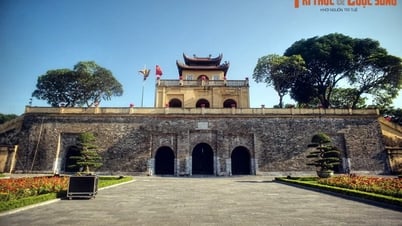

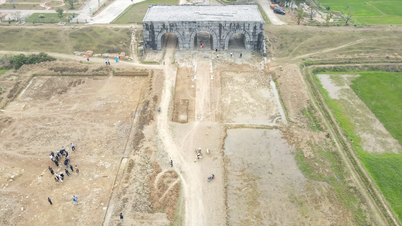





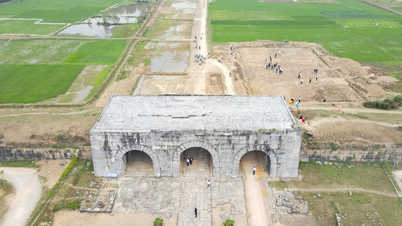


































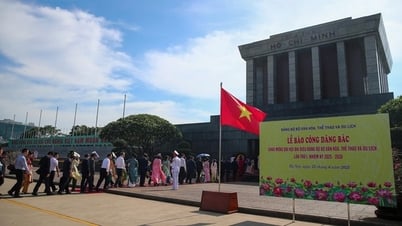



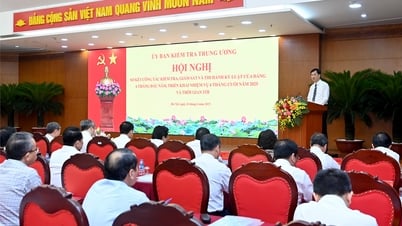

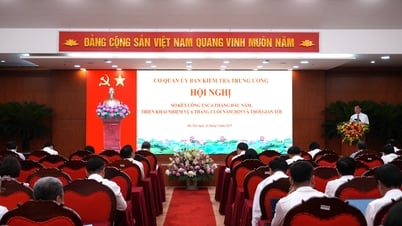

























Comment (0)